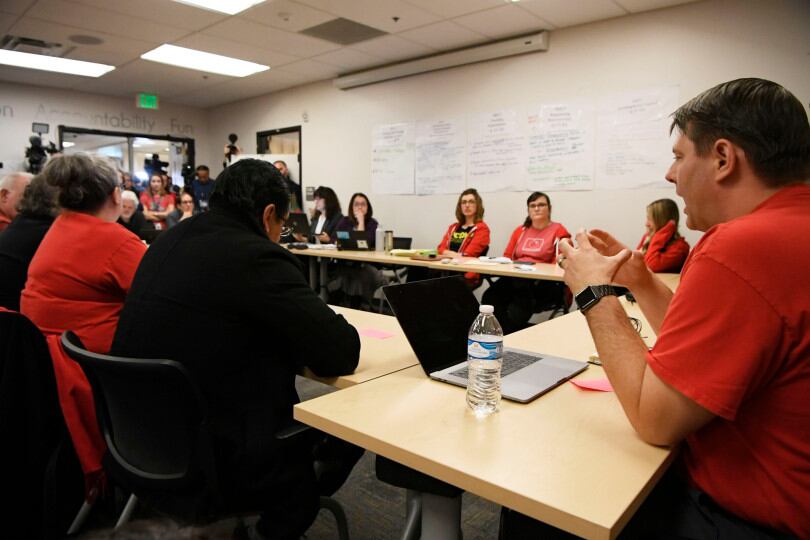The Denver school district and teachers union are set to begin negotiating Thursday on whether teachers will forgo some pay raises to help fill a $65 million budget gap.
In the hopes of avoiding layoffs and insulating individual schools from cuts, Superintendent Susana Cordova sent a letter Tuesday to the Denver Classroom Teachers Association requesting to reopen a three-year contract that resulted in substantial raises for teachers. The contract was signed last February after a three-day teacher strike.
While many teachers expressed frustration about the move on social media, union President Tiffany Choi said union negotiators are willing to hear the district out.
“DCTA recognizes that in the wake of a pandemic and economic crisis, everyone will need to make sacrifices, and we are willing to go to the bargaining table to have this discussion about what is best for our students,” Choi said in a statement Wednesday.
State law requires teacher contract negotiations be conducted in public. Thursday’s session will take place over video conference because of the coronavirus pandemic. The atmosphere will be different than that of the bargaining sessions held during the strike, when hundreds of teachers filled the room wearing union T-shirts, waving signs, and chanting.
A coronavirus-induced economic downturn has led to declining state tax revenue, which caused Colorado lawmakers to make steep cuts to education funding. As a result, Denver Public Schools must cut $65 million from its $1.1 billion budget next school year.
The district doesn’t have much time. By law, the Denver school board must approve a budget for the 2020-21 school year by June 30. School board members on Wednesday declined to comment on reopening the teachers contract.
Eliminating teachers’ annual cost-of-living raises would save the district $7 million, according to a proposal by district officials. Freezing teachers’ “step” increases — or the pay raises they earn for notching another year of service — would save another $9 million.
The proposal also calls for cutting $18 million in expenses from the district’s central office. Another $5 million in cuts would come from “progressive pay adjustments” for employees who are not teachers. Low-wage workers, such as custodians and bus drivers, would get raises, while higher-wage employees would see their salaries reduced.
In addition, district officials have proposed using $10 million from the coronavirus relief bill passed by Congress. But restrictions on the federal money make it difficult to use more, officials said.
“It is unfortunate that DPS so far has only proposed using $10 million of the CARES Act money and no reserves money to cover the budget shortfall for next year,” Choi said in her statement.
The district has about $100 million in budget reserves. While officials said the district will likely use some of it, they have not specified an amount.
Negotiations are set to begin at 10 a.m. Thursday. The public can watch here.








